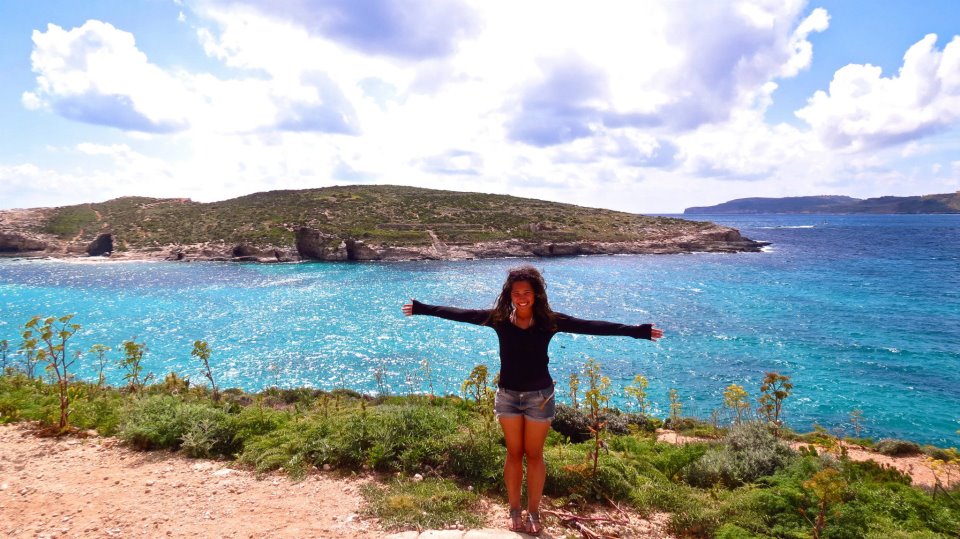
In today’s global economy, studying abroad can be a defining element for a professional career. Companies are increasingly looking for leaders with the ability to adapt easily in a different culture and possible employees coming from different backgrounds.
But is STU opening the international doors for all its students? How hard is it to get into the exchange program?
Shauna Foote, academic advisor at St. Thomas University, said the program is open to all STU students who have a minimum 3.0 GPA.
“For most exchange destinations we can send up to two students per academic year, but we can send up to 10 students to Japan,” Foote said.
“Since our students do not pay tuition at the host institution while on exchange, our partner universities set their numbers based on financial reasons.”
To be eligible for the exchange program, students must be going into their third or fourth year of studies and they must have an annual B GPA. Foote said STU’s partner institutions set these prerequisites and there are standard requirements for most exchange programs.
However, she said STU would like to see more opportunities for students to participate in international experiences.
“We would like to see all of our exchange spots filled each year, but we often have several spaces open and not enough exchange applicants to fill them,” she said. “ I think the university is exploring more short-term study abroad options, which may be more attractive to students.”
The cost per semester depends on the exchange destination, but it runs between $7,000 and $12,000. The credits students take at these universities can be transferred back to their bachelor of art degrees.
Nonetheless, students applying for an exchange program can only take four courses per semester— a factor that may have an impact on a student’s graduation date or scholarship status.
“We have exchange agreements with universities in Chile, Argentina, Japan, Malta, Sweden, Texas, Quebec, Australia and Korea,” Foote said. “Students pay their regular tuition fees to STU, but are responsible for the costs of their flights, food, accommodations and spending money.”
Andrew Knowles, a 20-year-old Bahamian student at STU, decided to do a semester abroad in Japan last year.
“I wanted a little bit of a change from Fredericton,” Knowles said. “Also, I met a lot of Japanese students in my first year and they were very interesting, so I wanted to see more of the place where they came from.”
The fourth year history student said he took Introduction to Japanese in his first year, which made him even more curious about the country and the language itself.
“The amount of things you learn about the country you go to and yourself is immensely useful and really interesting,” Knowles said. “Besides, the good thing is that it is only one semester, instead of a whole year, so if you enjoy it you can stay longer and if you don’t, then you can just come back.”
Knowles said his most remarkable experience was in the middle of the summer vacation, when he woke up and realized that he could speak and understand the language.
“Up until that point I was having a lot of trouble and lack of confidence in speaking, reading and general communication,” Knowles said. “That day when I woke up though, I was able to think in Japanese, instead of constantly translating to English to understand and it was probably one of my most interesting experiences for sure.”
STU alumni Juliana Duque experienced a semester abroad in Malta— one the most competitive destinations.
The 22-year-old Colombian said STU only accepts one student for the country located in the Mediterranean Sea, as the University of Malta annually hosts several exchange students that come from different places in Europe.
“I chose Malta because I had interest in Europe, but also because they offered dance modules, which I could translate into culture and art courses in terms of liberal arts education,” Duque said.
“Who wouldn’t want to skip the winter immersed in European culture, while attaining an even broader educational experience? Sounds like the time of a lifetime.”
Duque said the most important aspect of the whole exchange was that she was thrown out of her comfort zone. So, she had no choice but to build a strong sense of confidence, compassion and identity.
“In one semester I broke a world record with the Olympics Tribute Dance London 2013. I became part of a multicultural family for six months. I was exposed to accents, cultures and ideas that changed me and expanded my perspective of the planet and people in general.
” I got a taste of Mediterranean culture and their arts. I swam in the clearest bluest water anyone has ever seen. I cliff-jumped off limestone rocks into beautiful colourful waters. I visited medieval, baroque and even ancient architecture; and travelled to more than five countries throughout the semester.
“Would I recommend it? Absolutely.”
